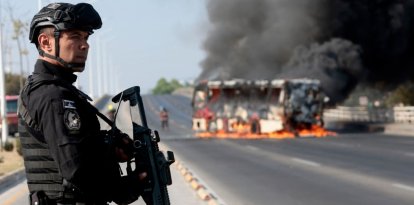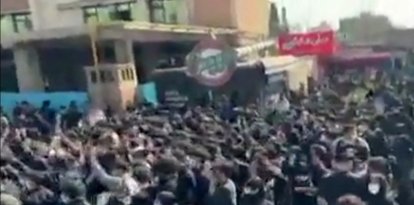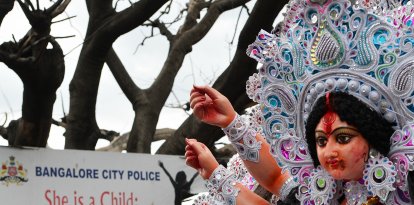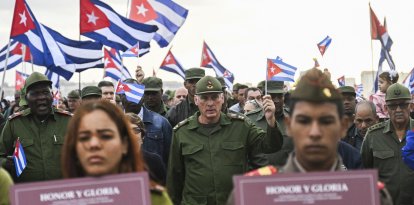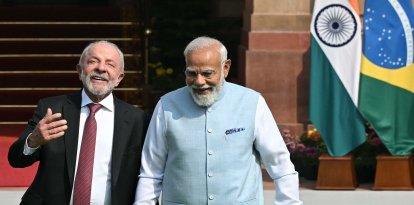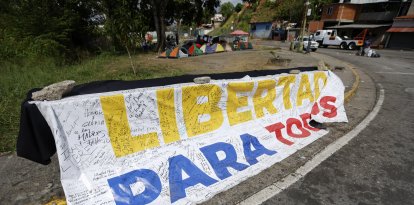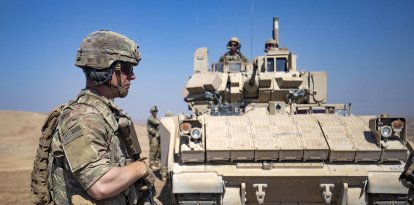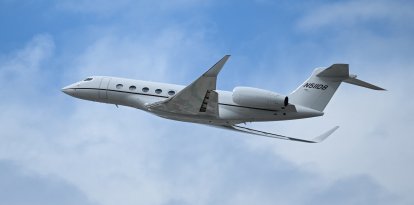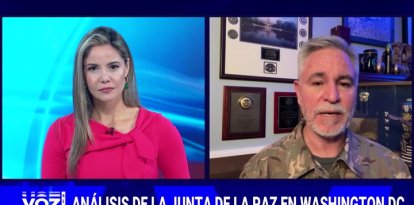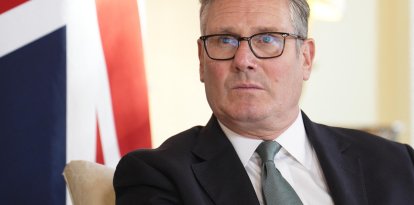New Syrian government announces "independent investigation" into civilian killings in Latakia
According to non-governmental organizations, 981 civilians and some 470 armed insurgents were killed following clashes between pro-Assad militias and forces of the new regime led by Ahmed Al Sharaa in Damascus.
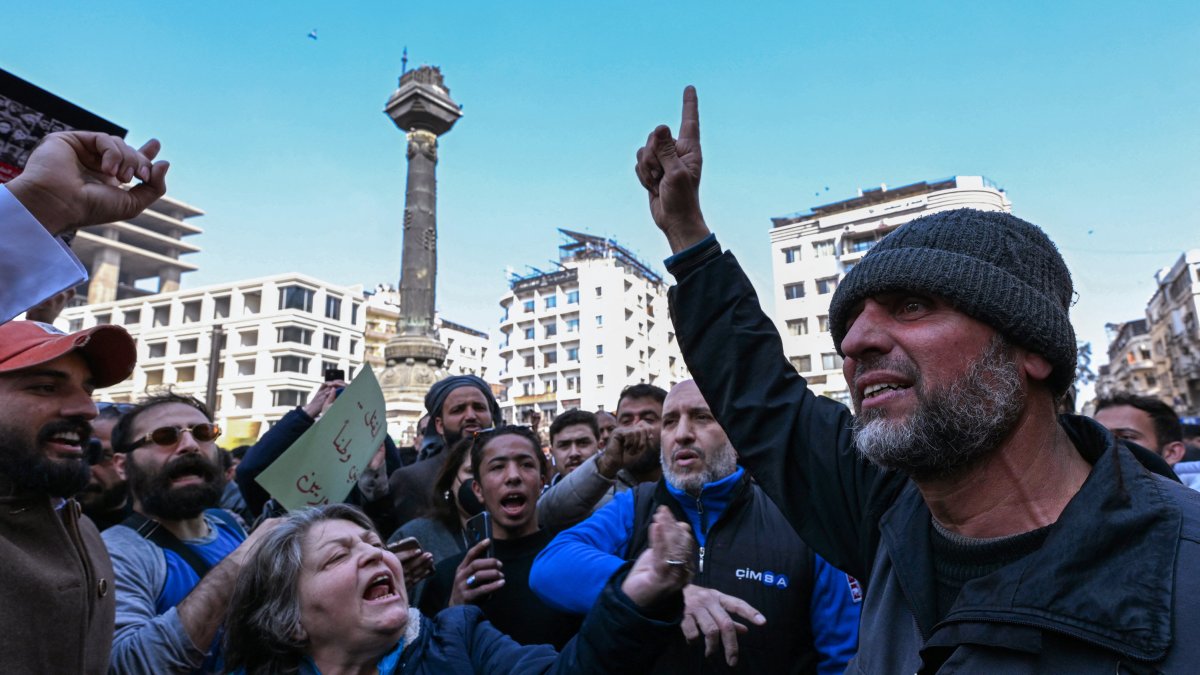
Protesters in Damascus after clashes in Latakia.
Syria's interim government, led by former HTS leader Ahmed al Sharaa (Mohamed al Golani), announced Sunday that it will take steps to seek those responsible for the killings of civilians that occurred in the western province of Latakia.
As stated by Al Sharaa, an "independent commission" has been set up to investigate the events in order to draw conclusions and seek culprits for the rampages that led to the death of 973 civilians, according to figures from non-governmental organizations with a presence on the ground.
The Syrian Observatory for Human Rights (OSDH) reported that Syrian government forces, along with allies in Latakia province, carried out executions of civilians and some armed elements in and around the city of Jableh. They did so in response to an armed subversive act by some members of the Alawite community and followers of former leader Bashar Assad, who revolted against the security forces last March 6.
The victims belong to this Alawite minority, a branch of Shiism, to which the Assad family belongs. To the thousand dead civilians must be added 481 armed fighters who were executed by the Syrian regime forces or were killed in combat. According to the OSDH, Syrian authorities in Damascus have given no death toll figures of their own.
An "independent commission" of the HTS government
"What is happening in the country are challenges that were foreseeable. We have to preserve national unity, civil peace, as much as possible and, God willing, we will be able to live together in this country," Ahmed Al Sharaa declared in a speech at a mosque in Damascus, the capital.
Al Sharaa took power after rebel forces, which include groups designated as terrorists, annihilated the last Assadist strongholds in Damascus and the rest of the country. Prior to this transitional stage, Al Sharaa was known under the war name of Mohamed al Golani. He led until January of this year the terrorist group, so designated by most of the international community, Hay'at Tahrir al-Sham.
Despite this past, Al Sharaa has achieved partial recognition by the major Western powers, which have sent high-ranking officials to meet with him, with the aim of resuming dialogue with Syria. These talks are largely supported by Turkey, the main international supporter of the rebel movements besieging the regime of Bashar Assad since 2011.
"We will hold to account firmly and without leniency all those involved in the bloodshed of civilians," Al Sharaa later said in a video released by Syria's official Sana news agency.
"We are guarantors of all the Syrian people and all faiths, and we protect everyone in the same way," Syrian Foreign Minister Asad al Shaibani said in Amman, where he is traveling.
International condemnation
UN High Commissioner for Human Rights Volker Türk said the killings of civilians "must stop immediately," while U.S. Secretary of State Marco Rubio condemned the "massacres" and called for those responsible "to be held accountable."
Germany called "vehemently on all parties to put an end to the violence" and the United Kingdom urged Syrian authorities to "ensure the protection of all Syrians."
During a sermon on Sunday, the Orthodox Patriarch of Antioch, John X, called on Al Sharaa to put "an end to the massacres." Along with him, other Middle Eastern Christian patriarchs issued a statement this weekend to condemn the massacres and call for accountability.
Syria's autonomous Kurdish administration, which controls large parts of the country's east and north, condemned the "practices that take us back to a dark era that the Syrian people do not want to live through again."
The European Union External Service (EEAS) for its part published a communiqué on social networks in which it put the spotlight on the pro-Assad militias that started the clashes. They made no mention of the killings of civilians by Syrian security forces.
More demonstrations and clashes in Syria
On Sunday, the Syrian Interior Ministry announced the dispatch of "additional reinforcements" to "restore calm" in Qadmus, a town in Tartous province, where "they are searching for the last men loyal to the former regime."
The official Syrian news agency Sana reported "violent clashes" in Taanita, a mountain village in the same province, where "numerous war criminals affiliated with the overthrown regime and groups of men loyal to Assad who protect them" took refuge.
A convoy of 12 military vehicles entered into the village of Bishnada in Latakia province, where security forces are searching homes, an AFP photographer noted.
"More than 50 people, relatives and friends, have been killed," said an Alawite resident of Jableh, who declined to identify himself.
Security forces and allied militiamen "picked up the bodies with bulldozers and buried them in mass graves, even throwing bodies into the sea," he added.
The OSDH and several activists released videos showing dozens of bodies and men in military uniforms shooting three people at point-blank range.
AFP was unable to independently verify these images.
In Damascus, security forces dispersed a sit-in protest against the killings after counter-demonstrators stormed the area shouting "Sunni state!" and various slogans against the Alawite community.













